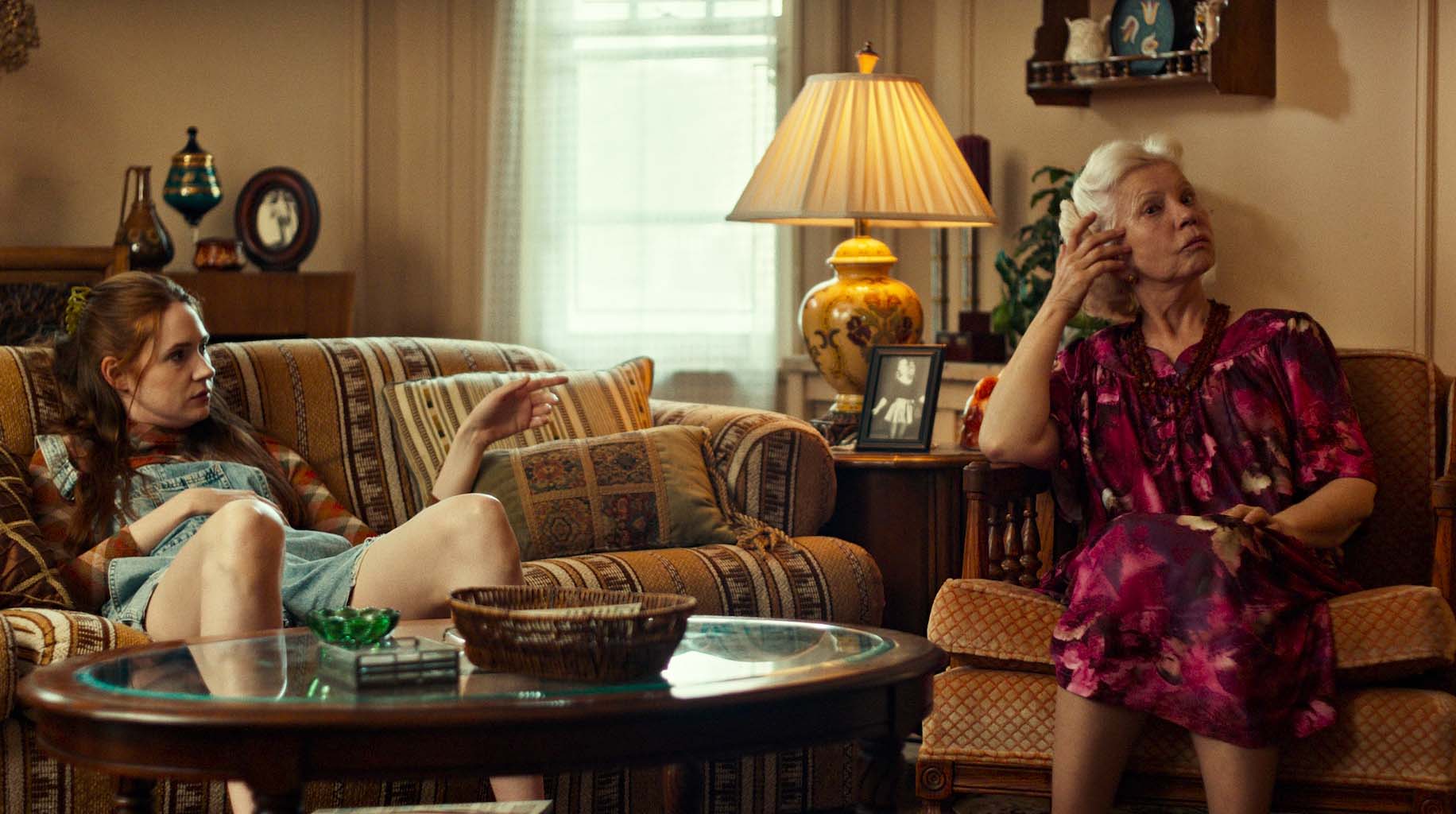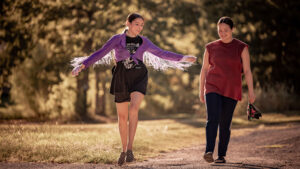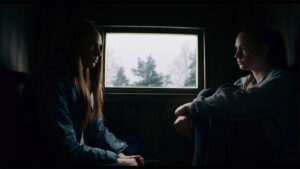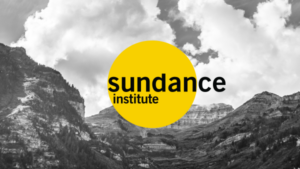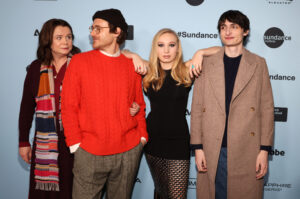(L–R) Louise (Karen Gillan) and Antonina (Margaret Sophie Stein) strike up an unconventional friendship in “Late Bloomers.”
By Lucy Spicer
The title of Lisa Steen’s feature directorial debut may be Late Bloomers, but how the Sundance alum’s film came to be was a case of right people, right time. Based on screenwriter Anna Greenfield’s own experiences, Late Bloomers stars Karen Gillan as Louise, a 20-something musician in Brooklyn whose foray into adulthood has yielded underwhelming results. Unable to face the reality of her mother’s Alzheimer’s back at home, Louise has a wrench thrown into her aimless lifestyle when she is informed that she has broken her hip after falling from a window ledge during a drunken attempt to contact her ex-boyfriend. Surrounded by patients three times her age while she’s in physical recovery, Louise meets the surly Antonina (played by stage and screen veteran Margaret Sophie Stein), an elderly Polish woman who speaks no English but seems to have something against Louise anyway. Though Louise tries to avoid her, circumstances keep pushing the two together, resulting in an unexpected job for Louise and an unlikely friend for Antonina.
“Personally, we had just gone through this phase of life, so it was helpful for us,” says Steen via Zoom, referring to the pivotal period of one’s late 20s that she and Greenfield had recently experienced and that Louise stumbles through in the film. Like Louise, Greenfield’s own mother was also diagnosed with aphasia, and writing Late Bloomers proved to be cathartic. Steen has partnered with Greenfield on several projects, including the short film Sundowners, which screened at the 2019 Sundance Film Festival.
“I also think there’s a little bit more increasing visibility on Alzheimer’s recently,” she adds, citing the news of Bruce Willis’ aphasia and dementia diagnosis. “The more we can talk about that experience and also create an environment for people to be able to talk about their experiences, I think the better,” hopes Steen.
But the film’s themes of personal growth and human connection that transcends age and language have the ability to resonate with audiences everywhere. “I kind of think of it more as a timeless story that will apply to you no matter what stage of life you’re in,” explains the director. In a world where increased screen time breeds interpersonal isolation, it’s good to have a reminder that no one is too old to make new friends — and that it’s never too late to grow up.
Supported by Sundance Institute’s Feature Film Program and Catalyst Program, Late Bloomers was released in theaters earlier this summer and is now available to watch online. Read on to glean further insight from our conversation with Steen below, including one of the director’s favorite memories from set as well as her advice to filmmakers who are just starting out.
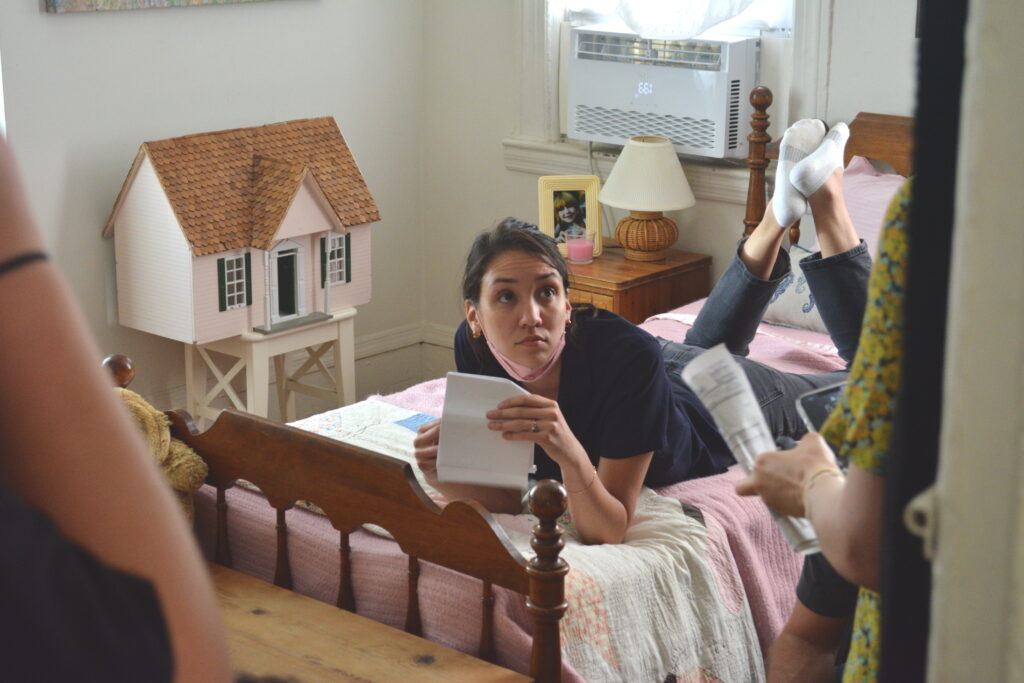
On her creative partnership with Greenfield:
“Anna and I went to college together, and we started collaborating more after college. We were always reading each other’s scripts and stuff and giving notes. She sent me the script when she first wrote it, and I loved it. And it wasn’t because I was going to direct it — it was just a friend sharing a script, and I really wanted to see it get made. Then after college, we started doing some shorts together and one of them went to Sundance. After that, the producers knew who I was and they were always so supportive of our collaboration, so they brought me on board to direct it, which was a dream.”
On the diverse performing backgrounds of the Late Bloomers cast:
“It was cool that everybody on the cast had come from such different worlds — Karen coming from the Marvel world, and Margaret with her background with theater and film in the ’80s and from before then. And then Jermaine [Fowler] does comedies but also does stand-up. Kevin [Nealon] does stand-up. It’s just all different types of performance. And so everybody had their own kind of experience to draw from, and I wanted to encompass all types of performance in it.”
On one of her favorite memories while filming Late Bloomers:
“The way production is, it’s so grueling and exhausting, and then you have these sudden magical moments. I mean the day that we shot the bar scene was one of the hardest days, I think, on set. Just the way it was scheduled and location and all of that. And so by the end of the day, we were so exhausted, but we had saved the actual dancing to the end of the day, and we went into it so zombie-broken and then had this ecstatic moment at the end of the day that was so beautiful. I feel like that kind of encompassed the magic of filmmaking to me. You go through all the hard stuff, and then you get to have this moment of magic.”
On moving from producing to directing:
“I think I do have the logical brain that helps me with the producing, but I can also get too mired in that, which is why I like being a director. I have moved my career more in the direction of being a director, which is great. But I do think also having the producer perspective hopefully makes me less of an asshole director in terms of the things that I ask for because I understand what’s realistic and I understand what’s worth asking for. So I like both, but I think it just uses very different parts of the brain. Producing feels more like a job to me that I feel like I can accomplish and get the task done, and then directing feels like I’m kind of letting my brain free.”
On Late Bloomers’ journey through Sundance Institute’s Producers and Catalyst programs:
“[Producers Alexandra Barreto and Taylor Feltner] spoke so highly of it. I think it was an incredible experience for them doing the Creative Producing Feature Film Lab, and they came back with some notes and thoughts that I think were really helpful for us for getting the script and getting the creative where we wanted it to be. So yeah, that was hugely helpful. They also made a lot of great partnerships there, too, and met a lot of other creatives that they got along with. But kind of all along, also with Catalyst, Sundance [Institute] has been super supportive. Also, I guess, because we were alums. They were just around the whole way and supporting us, which was great. So after the Creative Producing Feature Film Lab, we went to Catalyst Forum. We met Park Pictures — who were one of the big producers — before that, but they were also at Catalyst. And we solidified all of our relationships there and met incredible people who are just down to support independent film, which was amazing. You don’t find those people out in the world that easily. So yeah, it was a great experience.”
Steen’s advice to early-career filmmakers:
“I think my main piece of advice is just to keep working with the people you like. I think there’s a way to make it work with just working with your friends. I know that sounds like a pipe dream, but it’s possible. So just keep doing it would be my advice. Because it’s such a long road making a movie, you have to make sure that you like the people that you’re working with.”




